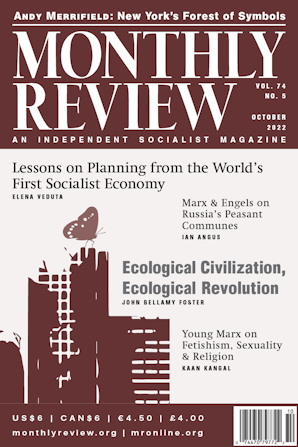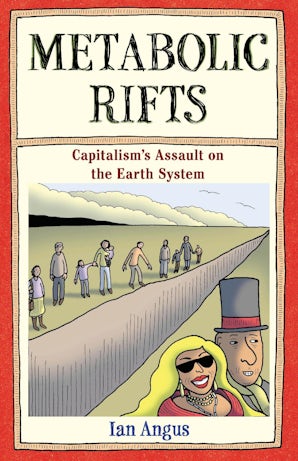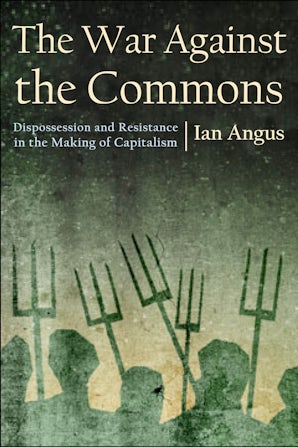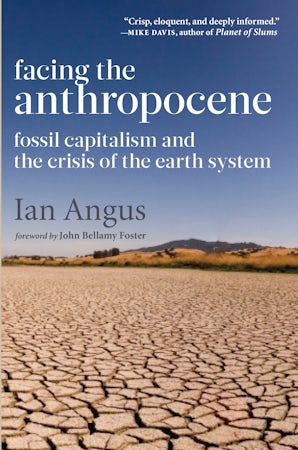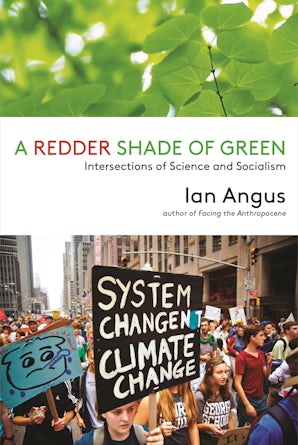Also in this issue
- Ecological Civilization, Ecological Revolution: An Ecological Marxist Perspective
- Some Lessons on Planning for the Twenty-First Century from the World's First Socialist Economy
- New York: Forest of Symbols
- Young Marx on Fetishism, Sexuality, and Religion: Revisiting the Bonn Notebooks
- Monthly Review in Historical Perspective
Books by Ian Angus
Metabolic Rifts
by Ian Angus
The War against the Commons
by Ian Angus
Facing the Anthropocene
by Ian Angus
A Redder Shade of Green
by Ian Angus
Article by Ian Angus
- Has the Anthropocene Been Canceled?
- An Ecological Civilization Will Have to Be Socialist
- The Meaning of 'So-Called Primitive Accumulation'
- The Fishing Revolution and the Origins of Capitalism
- Facing the Anthropocene: An Update
- The Trial of Thomas Hardy: A Forgotten Chapter in the Working-Class Fight for Democratic Rights
- Superbugs in the Anthropocene: A Profit-Driven Plague
- Cesspools, Sewage, and Social Murder: Environmental Crisis and Metabolic Rift in Nineteenth-Century London
- Marx and Engels and the 'Red Chemist': The Forgotten Legacy of Carl Schorlemmer

